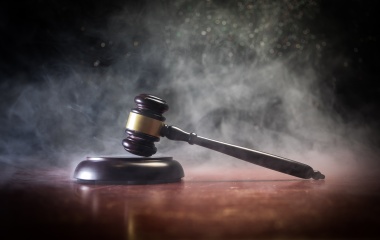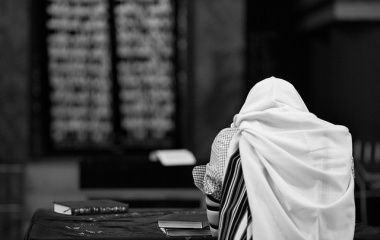
“Then all the elders of the town nearest to the corpse shall wash their hands over the heifer whose neck was broken in the wadi. And they shall make this declaration: 'Our hands did not shed this blood, nor did our eyes see it done'” (Devarim 21:6-7). The Torah describes the tragic situation of a corpse found out in the field, which - as the commentaries explain - shows signs of foul play.
In response the Torah prescribes a rather strange ritual in which the elders (i.e. the leaders) of the nearest town are to bring a calf, which like the red heifer has had no yoke placed upon it. It is to be slaughtered from the back of the neck, with the elders making the declaration that they did not kill this person. That our leaders would have to declare that they did not murder is beyond tragic. So much so that they could not accept the simple reading of the text.
“Would it enter anyone’s mind that the elders of the court are suspect of blood-shedding?! Rather, we never saw him and let him depart without food or escort" (Rashi, quoting Sotah 45b). That the elders did not kill him was a given. But while they may not have pulled the trigger, they may have let a stranger in town wander the streets unaccompanied. They may not have seen to it that his basic needs of food and housing were taken care of. That is the duty of town leaders. And if they can’t say “we never saw him and let him depart without food or escort” then the Torah considers it as if they have spilled blood.
That is perhaps unfair, but those are the demands upon leadership. They must see to it that society is organized in such a fashion that murder is inconceivable, that the needs of every single person are taken care of.
That leaders are responsible even if they are not directly permeates Jewish teaching. A little earlier in the parsha the Torah instructs that cities of refuge are to be set up for those who are guilty of accidental manslaughter. As long as the perpetrator remains in the confines of the city he is [to be] protected from one who might want to avenge the blood of the deceased[1].
The perpetrator must remain in the city until the death of the kohen gadol – something that could happen the next day or not until after the manslaughterer dies. What this has to do with the kohen gadol is unclear – unless one understands that as the spiritual leader of the Jewish people it is his responsibility to lead a society in which accidents – all of which are just different degrees of carelessness, incompetence, negligence or all three – do not happen[2].
How could it be that people drive under the influence, cut corners, don’t think ahead or use shoddy building material? The High Priest may not, in fact cannot, be on top of everything or even have the needed expertise. But that matters little. They must create the atmosphere where such is unthinkable. And when what should be unthinkable happens, they bare ultimate responsibility, even if they did not know the people involved.
Leadership is not for the faint-hearted and should be taken on only by those who understand that the “buck stops with them”, that they are held accountable for the mistakes and incompetence of others. The awesome responsibility of leadership is why we have a special prayer recited in shuls around the world for “those who involve themselves in the needs of the community faithfully”.
Failure to some degree is inevitable. It takes great leadership to know which failures allow one to learn from one’s failures and which require new leadership.
[1] Should the manslaughterer leave the city one is permitted – or according to others - fulfills a mitzva by killing him. It is noteworthy that while the conditions for a court to execute even a pre-meditated murder are so onerous as to make it impossible to carry out capital punishment, the Torah allows, or perhaps encourages, a relative to avenge the blood from one who killed accidentally.
[2] Jewish law does recognize that there are, rarely, events that truly no-one is at fault for, what is an act of G-d and G-d alone. Today those are very few and far between. One can no longer say there is nothing we can do to prepare for an earthquake.



